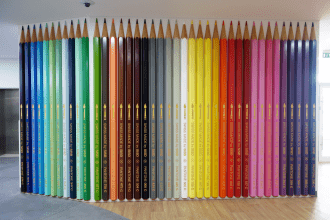We use cookies to improve your online experiences. To learn more and choose your cookies options, please refer to our cookie policy.

In the recent blockbuster film, “Star Wars: The Last Jedi,” Jedi Master Yoda tells Luke Skywalker, “The greatest teacher, failure is.” There’s nothing at all counterintuitive about what our little green friend said – some of the greatest lessons in life come from making mistakes and learning how to do better. The most important takeaway therefore is that we shouldn’t be excessively disparaging mistakes or failure, especially among young students who are still learning the ways of the world.
Indeed, problem-solving and analytical thinking – two important skills that will be essential for the future workforce – are founded on past mistakes quickly being identified and learned from. Rather, we should be cultivating an environment that allows them to make mistakes safely and without summary judgement, and lets them learn from them.
At Swiss International School Dubai, we strive to cultivate such an environment, not only in our curriculum but in daily boarding school life as well. We provide a brand of pastoral care that realizes the value of mistakes and helps students think about them, rather than disciplining them arbitrarily. Students are taught not to be afraid of mistakes, and indeed should work together to take risks, learn from failure, and grow in the process.
We invited Mr. Garry James, our Head of Boys' Boarding and Teacher of MYP Physical Health Education, to provide an anecdote about failure and learning from it.
This reminds me of a fantastic speech I once heard in my youth, when playing rugby in Wales and while watching the British and Irish Lions tour of South Africa in June 1997. There was a coach on this tour, talking passionately with his players, helping to inspire them toward future success. He struck a cord with me, which has become a fundamental core value that has remained with me ever since.“There are two types of players. There are the honest ones, and then there’s the rest. The honest player gets up in the morning and takes a good look themselves in the mirror and says, ‘I’m going to get better. I’m going to get better. I’m going to get better!’. They doesn’t complain about peripheral thing’s or blame others for either their own or other’s mistakes, but they take responsibility for their own actions, do not dispense blame, dwell on material things or makes excuses” (Jim Telfer)
Life is indeed a journey, full of twists and turns, and highs and lows. The true challenge is not always obvious, but in truth, it is the manner in which we respond to challenging times. A principle that I speak with my students about is this, ‘Making mistakes should not be seen as a negative, but a fantastic learning opportunity’. The true challenge is to make sure that we learn from these mistakes and then endeavour to become better and wiser individuals from the experience. The true injustice is to allow these mistakes to rule our lives and allow them to happen once again, and then they should no longer be seen as a mistake, but a conscious choice.Only by holding a positive approach to life and by embracing our mistakes and seeing then as a fantastic leaning opportunity can we truly grow to become better and more successful individuals. Though, we must also remember that no individual can be successful on their own; but by working together collaboratively, taking risks, talking and listening to others can true success be achieved.